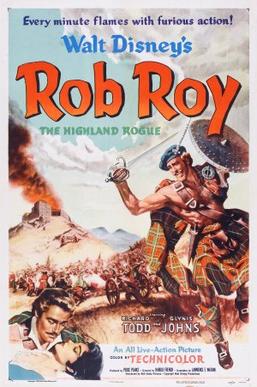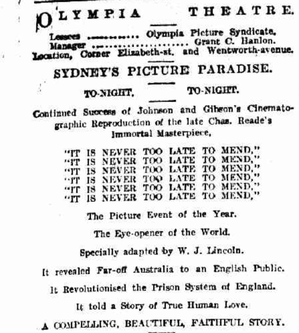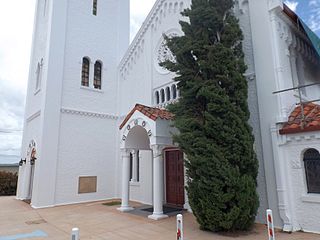Related Research Articles

Easter, also called Pascha or Resurrection Sunday, is a Christian festival and cultural holiday commemorating the resurrection of Jesus from the dead, described in the New Testament as having occurred on the third day of his burial following his crucifixion by the Romans at Calvary c. 30 AD. It is the culmination of the Passion of Jesus Christ, preceded by Lent, a 40-day period of fasting, prayer, and penance.

Saint George, also George of Lydda, was an early Christian martyr who is venerated as a saint in Christianity. According to tradition, he was a soldier in the Roman army. Of Cappadocian Greek origin, he became a member of the Praetorian Guard for Roman emperor Diocletian, but was sentenced to death for refusing to recant his Christian faith. He became one of the most venerated saints, heroes and megalomartyrs in Christianity, and he has been especially venerated as a military saint since the Crusades. He is respected by Christians, Druze, as well as some Muslims as a martyr of monotheistic faith.

Frederick George Peter Ingle Finch was an English-Australian actor of theatre, film and radio.
The Limelight Department was one of the world's first film studios, beginning in 1898, operated by The Salvation Army in Melbourne, Australia. The Limelight Department produced evangelistic material for use by the Salvation Army, including lantern slides as early as 1891, as well as private and government contracts. In its 19 years of operation, the Limelight Department produced about 300 films of various lengths, making it one of largest film producers of its time.
Ronald Grant Taylor was an English-Australian actor best known as the abrasive General Henderson in the Gerry Anderson science fiction series UFO and for his lead role in Forty Thousand Horsemen (1940).

Rob Roy: The Highland Rogue is a 1953 adventure film produced by RKO-Walt Disney British Productions which is about Rob Roy MacGregor. It was the last Disney film released through RKO Radio Pictures.

Cinesound Productions Pty Ltd was an Australian feature film production company. Established in June 1931, Cinesound developed out of a group of companies centred on Greater Union Theatres that covered all facets of the film process, from production to distribution and exhibition. Cinesound Productions established a film studio as a subsidiary of Greater Union Theatres Pty Ltd based on the Hollywood model. The first production was On Our Selection (1932), which was an enormous financial success.

All Saints' Day, also known as All Hallows' Day, the Feast of All Saints, the Feast of All Hallows, the Solemnity of All Saints, and Hallowmas, is a Christian solemnity celebrated in honour of all the saints of the Church, whether they are known or unknown.
Martyrs' Day are days observed in or by some countries, incl. the United States, Japan, India, Brazil, Canada and Australia, to recognise martyrs such as soldiers, revolutionaries or victims of genocide. Below is a list of various Martyrs' Days for different countries of the World.
William Percy Lipscomb was a British-born Hollywood playwright, screenwriter, producer and director. He died in London in 1958, aged 71.

Dawn is a 1928 British silent war film directed by Herbert Wilcox and starring Sybil Thorndike, Gordon Craig, and Marie Ault. It was produced by Wilcox for his British & Dominions Film Corporation. The film was made at Cricklewood Studios with sets designed by Clifford Pember.

The West Terrace Cemetery, formerly Adelaide Public Cemetery is a cemetery in Adelaide, South Australia. It is the state's oldest cemetery, first appearing on Colonel William Light's 1837 plan of the Adelaide city centre, to the south-west of the city. The whole cemetery is state heritage-listed, including Smyth Chapel, and it is one of the oldest operating cemeteries in Australia.

Alfred Rolfe, real name Alfred Roker, was an Australian stage and film director and actor, best known for being the son-in-law of the celebrated actor-manager Alfred Dampier, with whom he appeared frequently on stage, and for his prolific output as a director during Australia's silent era, including Captain Midnight, the Bush King (1911), Captain Starlight, or Gentleman of the Road (1911) and The Hero of the Dardanelles (1915). Only one of his films as director survives today.

It Is Never Too Late to Mend is a 1911 Australian feature-length silent film written and directed by W. J. Lincoln.

The Loyal Rebel is a 1915 Australian silent film directed by Alfred Rolfe set against the background of the Eureka Rebellion.
The Shepherd of the Southern Cross is a 1914 Australian silent film about an Englishwoman torn between two men. It was the first feature film produced by Australasian Films.
Rex Rienits was an Australian writer of radio, films, plays and TV. He was a journalist before becoming one of the leading radio writers in Australia. He moved to England in 1949 and worked for a number of years there. He later returned to Australia and worked on early local TV drama.

Holy Trinity Anglican Church is a heritage-listed Anglican church at 68 Hawthorne Street, Woolloongabba, Brisbane, Queensland, Australia. Since 1869, three church buildings have stood on this hill top site. The current church was completed in 1930. It was designed by the architect Eric Ford, featuring Romanesque and Spanish Mission Revival style architecture. Its preserved original architectural features make the church a traditional wedding venue of inner Brisbane. The church was added to the Queensland Heritage Register on 9 May 2008.

Soldiers of the Cross was a multimedia production directed by Joseph Perry, made in Australia by the Limelight Department of the Salvation Army. It premiered in 1900 and toured nationally and internationally until 1920.
The Cheer-Up Society was a South Australian patriotic organisation founded during The Great War, whose aims were provision of creature comforts for soldiers in South Australia. Much of their activity was centred on the Cheer-up Hut, which they built behind the Adelaide railway station, and almost entirely staffed and organised by volunteers.
It is sufficient to know that we are all doing something to give pleasure and comfort to the brave soldiers who are going from Australia to fight for King and Empire; and that we hope to receive them on their return in this Cheer-up Hut of theirs – for it belongs to the soldiers and not to the members of the Cheer-up Society – where they will enjoy the comforts and rest of home. Nothing we can do is too good for these heroic soldiers of ours. The sphere of work of the society is kept within definite and specific limits, which do not overlap in the slightest the splendid patriotic work which is being carried out successfully by the S.A. Soldiers' Fund, the Red Cross, the Wattle Day League, the Y.M.C.A., the S.O.S., the Belgian Fund, and other like organizations. The desire of the members of the Cheer-up Society is to co-operate in the most amicable manner with all such societies.
References
- ↑ "THE RESEARCH BUREAU HOLDS AN AUTOPSY". Sunday Mail . Brisbane. 17 February 1952. p. 11. Retrieved 29 June 2015– via National Library of Australia.
- ↑ "OUR FILM JUBILEE". The Sunday Herald . Sydney. 9 September 1951. p. 9. Retrieved 29 June 2015– via National Library of Australia.
- ↑ Soldiers of the Cross at National Film and Sound Archive